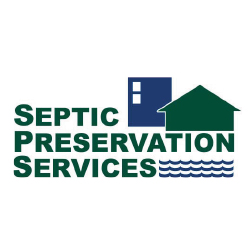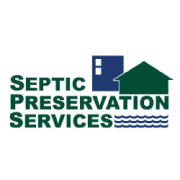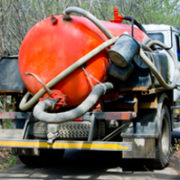 While most people who live in an area where septic systems are used are familiar with how they work and the type of care and maintenance required, those who are new to this type of on-site sewage processing have a lot to learn. This article features the top ten things that you need to know about septic systems in Rhode Island or anywhere in New England in order to keep your system running properly.
While most people who live in an area where septic systems are used are familiar with how they work and the type of care and maintenance required, those who are new to this type of on-site sewage processing have a lot to learn. This article features the top ten things that you need to know about septic systems in Rhode Island or anywhere in New England in order to keep your system running properly.
#1 – What Kind of Septic System Do You Have?
While there are standard systems that consist of a basic septic tank that empties out into a leachfield, there are several variations on that standard set-up that can make a difference in how your septic system operates and the type of maintenance required. If you aren’t sure what kind of septic system you have, set up an appointment with a licensed and certified septic system inspection and maintenance service, such as Septic Preservation Services, to find out for sure.
#2 – Where Is Your Septic System Located?
The only way you can protect your septic system from accidental damage is to know where it is located. The septic tank is buried underground and your leachfield should be somewhere near the tank. There are a couple of important rules regarding leachfield care and damage prevention that will be discussed later, so knowing where yours is located should be at the top of your list. Following your septic system inspection, speak with the technician to find out where everything is on your property.
#3 – Are You Required to Get Professional Inspections?
Whenever you buy or sell a home that has a septic system, you are required by law to get a professional inspection by a licensed inspector. That being said, you may also be required to get a Rhode Island town inspection, depending on where you live. Many towns throughout the state require these inspections as part of the local ordinance, which includes both residential and commercial property owners alike. Towns such as North Kingstown, South Kingstown, Jamestown and Charlestown. Septic Preservation Services is licensed to perform Rhode Island town inspections and Massachusetts Title V inspections.
#4 – Is Your Septic System Working Properly?
Again, a visit from a licensed septic system inspection company will help you determine a lot about your system. You should consider getting a preventative septic system maintenance in Barrington or anywhere in the state that will help you stay on top of your system to make sure it is running effectively. Regular check-ups can help you avoid major costs associated with repairs or replacement of septic systems in Rhode Island.
#5 – What Are Some Signs of Septic System Failure?
If your septic system fails it can quickly become a health hazard. Signs that your system is failing or has failed include sewage or untreated wastewater pooling over the leachfield, backups happening in the bathroom, kitchen or other plumbing areas inside your home, and a horrible odor wafting up from your drains or in your backyard. If this happens, make sure to contact a licensed septic system technician out to your property right away.
#6 – What Maintenance Has Been Done on My System Before?
Before you purchase a home, it is important to speak with the seller about the septic system. Questions to ask include the age of the system, the last date that the system was pumped, the frequency of pumping, if there have been any signs of potential failure and whether or not any additions have been made to the house since the septic system was installed. Septic systems are designed based upon the number of bedrooms, which indicate the possible number of persons living in the home. It is important to ensure that the system has been properly maintained and that it can accommodate the usage of the home.
#7 – What Type of Care is Required for a Septic System?
Septic maintenance in Barrington is the same as it is anywhere else. The first rule of thumb is to watch your water use so you don’t flood the leachfield. Daily water use per person should be around 50 gallons. A leachfield is designed for each home based upon a maximum use of 120 gallons per bedroom. This figure includes laundry, showers, toilet flushes – anything that puts water into the septic tank. Don’t put items into your system such as tissues, cigarettes, cotton swabs, kitty litter, coffee grounds or sanitary napkins. Do not use a garbage disposal and never put cooking oil or grease down the drain. Chemicals and cleaning products should not go down the drain either, including pesticides, paints, thinners, poisons an even disinfectants. These chemicals will kill the good bacteria in your system that helps to purify the sewage.
#8 – What Type of Care is Required for a Leachfield?
It is important that to keep an eye on your leachfield to make sure it is safe from damage. The soil over your leachfield should be covered with grass or another safe type of vegetation that won’t create deep roots and damage the system. Grass works to prevent the soil from eroding over time. Never drive or park a vehicle over top your leachfield or septic tank. Avoid doing any type of construction over or near the area and never ever cover your tank or leachfield with concrete or asphalt.
#9 – Are There Any Preventative Maintenance That Can Be Done?
Septic systems in Rhode Island will run better if you keep an eye on a few simple things. Check your home regularly for leaks or dripping faucets to cut down on wastewater in the septic tank. If you have any trees near your system or leachfield, cut them own or move them to another area of your property. Make sure to treat any remaining stumps to prevent continued root growth and spread underground. Make sure none of your gutters are pointing toward your leachfield or your system will quickly become flooded when it rains. When you hire a licensed septic system inspection technician to review your system, ask about preventative maintenance programs that are designed to help you stay on top of your system to keep it running effectively and efficiently.
#10 – Can I Do Repairs Myself?
Even if you are completely familiar with your septic tank system setup and have experience working with septic systems in the past, it is in your best interest to hire professional septic maintenance in Barrington or anywhere else in New England to repair your septic system. The same ordinances an local laws that require Rhode Island town inspections also require that repairs and other professional services be conducted by professional technicians that are licensed and certified to do the work at hand. Septic systems can be very dangerous and it is in your best interest and safety to hire a professional to get the job done.
Get Started on the Right Track
Whether you need a septic system inspection or maintenance for your septic systems in Rhode Island, contact Septic Preservation Services to evaluate, maintain and repair your system. SPS offers a preventative maintenance program that is designed to help you save money over the lifetime of your septic system by making sure that everything is in proper working order on a regular basis.
If you need Rhode Island town inspections, SPS is licensed to conduct these septic system inspections and file the necessary reports according to your town ordinance. For more information on Septic Preservation Services, call 877-378-4279 or visit www.septicpreservation.com
 6/28/16 Septic Preservation Services is making progress working with the Woodstock brewery in addressing their wastewater issues. The brewery is located in Woodstock, NH and has been mandated by the Town Officials to reduce the strength of their wastewater. Once the current design is implemented the waste strength will be reduced from a BOD of greater than 20,000 mg/l to less then 200 mg/l. This reduction in waste strength is possible due to a combination of technologies including aerobic treatment.st
6/28/16 Septic Preservation Services is making progress working with the Woodstock brewery in addressing their wastewater issues. The brewery is located in Woodstock, NH and has been mandated by the Town Officials to reduce the strength of their wastewater. Once the current design is implemented the waste strength will be reduced from a BOD of greater than 20,000 mg/l to less then 200 mg/l. This reduction in waste strength is possible due to a combination of technologies including aerobic treatment.st

 In addition to Title 5 Inspections, septic repairs and cleaning services, Septic Preservation Services also provides professional consultations to property owners, both residential and commercial.
In addition to Title 5 Inspections, septic repairs and cleaning services, Septic Preservation Services also provides professional consultations to property owners, both residential and commercial.
 Most homeowners don’t think about their septic systems each and every day. Plumbing and sewage are those types of things that tend to be out of sight and out of mind for most people. The only time we really think about them is when there’s a problem: a drain that won’t go down, a toilet that won’t flush, a septic system that suddenly smells.
Most homeowners don’t think about their septic systems each and every day. Plumbing and sewage are those types of things that tend to be out of sight and out of mind for most people. The only time we really think about them is when there’s a problem: a drain that won’t go down, a toilet that won’t flush, a septic system that suddenly smells.
 While most people who live in an area where septic systems are used are familiar with how they work and the type of care and maintenance required, those who are new to this type of on-site sewage processing have a lot to learn. This article features the top ten things that you need to know about septic systems in Rhode Island or anywhere in New England in order to keep your system running properly.
While most people who live in an area where septic systems are used are familiar with how they work and the type of care and maintenance required, those who are new to this type of on-site sewage processing have a lot to learn. This article features the top ten things that you need to know about septic systems in Rhode Island or anywhere in New England in order to keep your system running properly.
 Massachusetts is known for its wide range of seasonal weather and as far as this year is concerned, we’ve already gotten our share of spring storms. There are a lot of things that homeowners need to be aware of during wet weather to protect their homes from damage. One of those things is the septic system, which can easily be overrun with the increased water flow, leading to a failed septic system.
Massachusetts is known for its wide range of seasonal weather and as far as this year is concerned, we’ve already gotten our share of spring storms. There are a lot of things that homeowners need to be aware of during wet weather to protect their homes from damage. One of those things is the septic system, which can easily be overrun with the increased water flow, leading to a failed septic system.
 Low-flow toilets are a great way to reduce the amount of wastewater that ends up in a residential sewage system. If you live in an area that relies on private septic systems, as opposed to a municipal sewer system, it is important to do everything you can to reduce water usage to prevent an overflow of wastewater.
Low-flow toilets are a great way to reduce the amount of wastewater that ends up in a residential sewage system. If you live in an area that relies on private septic systems, as opposed to a municipal sewer system, it is important to do everything you can to reduce water usage to prevent an overflow of wastewater.

